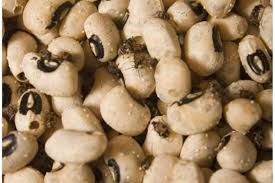Agricultural experts have called on the Federal Government to prioritise organic farming and reduce the nation’s dependence on hazardous agrochemicals, which they say endanger public health and limit Nigeria’s access to global markets.
The appeal was made during a field visit to organic farms in Karshi, Abuja, as part of a report on sustainable agricultural practices.
Mr Adams Peter, Managing Director of Amadam’s Organic Agricultural Company, said Nigeria’s overreliance on chemical-based farming is a key reason the country’s food exports face rejection abroad.
“Our food exports are being rejected in many countries because they are not organic and are contaminated by chemicals,” he explained.
Peter noted that most farmers are not properly trained in the safe use of synthetic pesticides and fertilisers, leading to misuse and harmful residue levels in food products. He said his company, operating since 2001, has focused on organic farming due to its broad benefits.
“Organic agriculture is not only safer for consumers; it also nourishes the soil and protects the ecosystem. It creates employment, especially for Nigerians, and can improve household income,” he said.
Despite increasing awareness of food safety, Peter lamented that organic produce remains largely unavailable in urban centres.
“We hardly find organic vegetables or foodstuffs in Abuja markets, which is why we’re working to establish dedicated organic food markets across the FCT. Government support is still very low. If we’re serious about improving food quality and boosting exports, we must invest in organic agriculture,” he added.
Mr Donald Ikenna, Lead Coordinator of the Alliance for Action on Pesticides in Nigeria, also raised alarm over the widespread use of highly hazardous chemicals in the country’s food production system.
“More than 40 per cent of the chemicals used by farmers in Nigeria are classified as highly hazardous. This puts both farmers and consumers at serious risk,” he warned.
Ikenna linked the use of these chemicals to rising cases of cancer, kidney failure, and other chronic illnesses, and highlighted the economic consequences of export rejections.
“People are falling ill from what they eat, and the economy is suffering as we lose billions to rejected food exports,” he said.
He called for a national shift toward safer alternatives such as biopesticides, organic fertilisers, and agroecological farming methods.
“We have the local capacity to produce organic farm inputs in Nigeria. What we need is investment, training, and strong political will. We must stop pumping money into harmful chemicals and start building systems that promote health, sustainability, and long-term food security,” Ikenna said.
StarReporters notes that organic and agroecological farming is gaining momentum globally as a safer, climate-resilient alternative to conventional agriculture.
(NAN)


